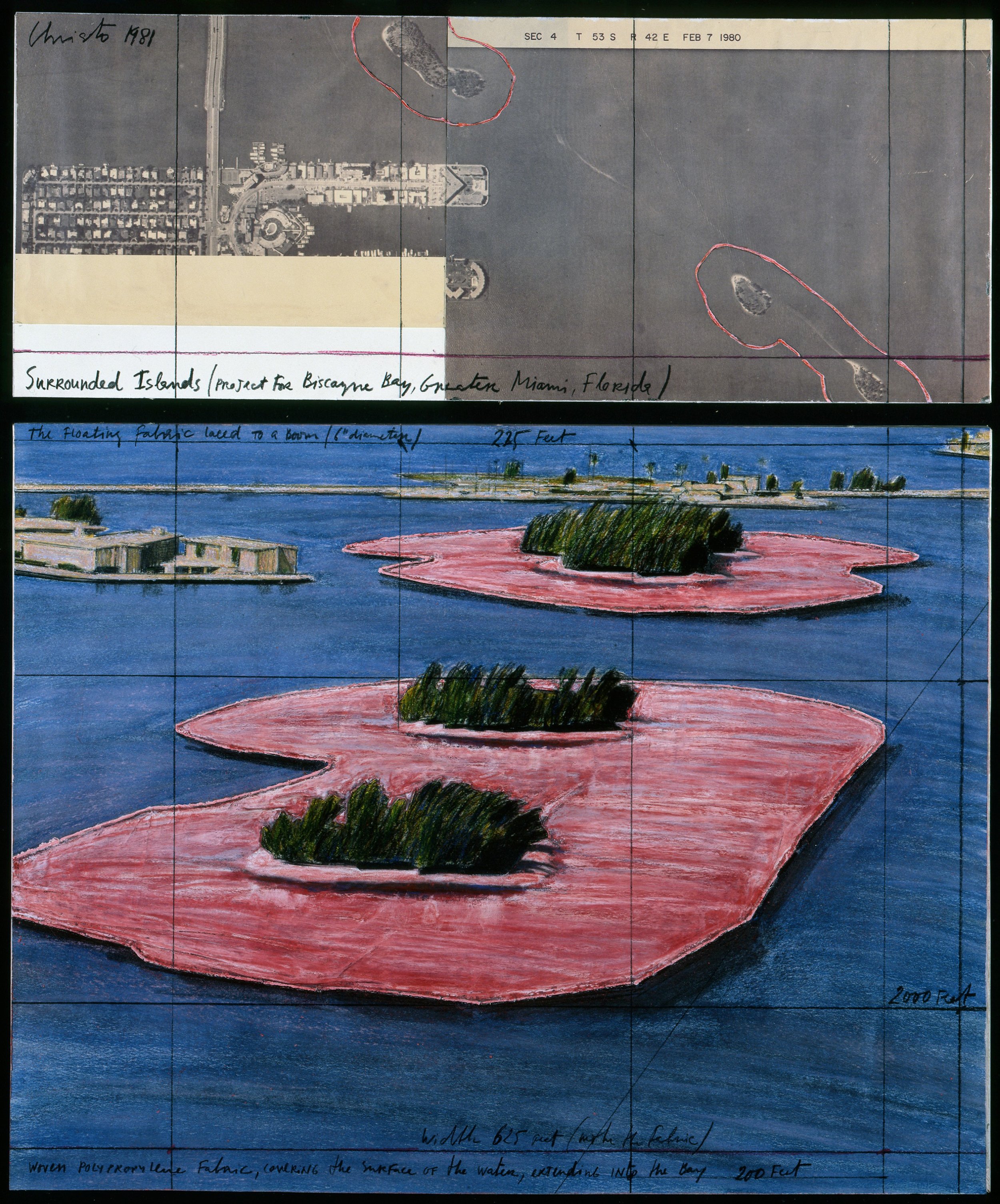"Pretty in Pink Polypropylene: Christo’s and Jeanne-Claude’s Surrounded Islands"
Pretty in Pink Polypropylene: Christo’s and Jeanne-Claude’s Surrounded Islands
Journal of Transnational American Studies, Vol. 10, Is. 1, 2019
Check out the new Summer edition of JTAS: SPECIAL FORUM: Archipelagoes/Oceans/American Visuality
I was invited by the editors to submit a response to Christo’s and Jeanne-Claude’s, Surrounded Islands, from 1983. It was a site-specific installation in Miami’s Biscayne Bay and GORGEOUS. As a nod to the 80’s and the John Hughes film starring Molly Ringwald, Pretty in Pink, shares a title with this response piece. I talk about what lurks beneath all the pretty pink polypropylene fabric and tie it in to an archipelagic discourse and eco-critical study. In other words, what’s really happening underneath this rosy couture-pelagic dressing?
The entire issue is an excellent read especially the introduction by the editors Hester Blum, Mary Eyring, Iping Liang, and Brian Russell Roberts whose essay presents a geographical approach often eschewed or misunderstood - that of archipelagic thinking and Ocean Studies. If you’re looking to just get your feet wet in Ocean Studies - this is a great place to start. They write,
What the islands of the sea and our sea of islands remind us is to imagine forms of relationality that reject the rigidity of the lines of demarcation stipulated by continental or terrestrial spaces. Such modes of analysis understand the planet as contingent and kinetic, and thus archipelagic and oceanic orientations may have special explanatory power in an age of ecological crisis.
Here, we wish to offer one possible map of these traditions, not modeled on a flat piece of paper with crosshatched lines of latitude and longitude but modeled on a navigational map of the sky that takes constellations of stars as modes of orientation, a map that can orient in spite of the fact or even because of the fact that it shifts in the sky over the course of hours and minutes. For us, the components of these constellations are often questions.
I love this for 2 reasons, because: 1) they offer solutions by literally providing a mapping of island-ocean frameworks as constellations in a way that lays bare their argument and is fully transparent (something rare and courageous in academia) and 2) I love the comparison with celestial constellations as an avid follower of cosmic phenomena. I am a starchild at heart.
I hope you enjoy this JTAS Special Forum Summer Edition 2019.




